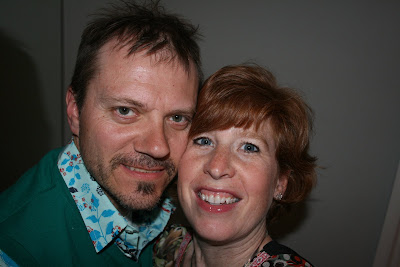
Monday, May 31, 2010
Sacred Cows Make the Best Hamburger - Mark Twain

Sunday, May 30, 2010
Saturday, May 29, 2010
Four Generations and a Ferret
Thursday, May 27, 2010
Queen for a Day
Wednesday, May 26, 2010
Eric's ball game
Tuesday, May 25, 2010
Third times a charm
Monday, May 24, 2010
so close....
Sunday, May 23, 2010
If Joey were on Lost
Saturday, May 22, 2010
smokin' hot
Friday, May 21, 2010
you wouldn't like me when I'm angry
Thursday, May 20, 2010
We're back to our simple routines

1. The Third Man (1949), directed by Carol Reed
After half a century, The Third Man remains a bona fide British classic: rich on atmosphere, strong on suspense and blessed with quite wonderful performances. A true collaboration between director Carol Reed and screenwriter Graham Greene, it is the story of a simple American (Cotten) who arrives in post-war Vienna to meet his old friend Harry Lime (Welles, evil and extraordinary), only to learn that Lime has been killed in an accident. But, as he unravels the truth, he is also drawn into the decadent and corrupt world in which Lime existed. Beautifully shot by cinematographer Robert Krasker (who won an Oscar for his work), the film is full of sequences that linger in the mind, while the acclaimed zither rendition of 'The Harry Lime Theme' by Anton Karas helps to create a rare, haunting movie atmosphere.
2. Brief Encounter (1946), directed by David Lean
A rightly celebrated tear-jerker which movingly recreates a little England on a northern railway platform (location: Carnforth, Lancashire). It shows that even the repressed British can display emotion (in a very understated manner, of course) when true love comes along. David Lean directed this expansion of Noel Coward's one-act play Still Life; Celia Johnson and Trevor Howard are the respectable middle-class couple who fall deeply in love but ultimately agree not to meet again and to return to their real lives. They do so with such dignity and restraint that it makes their ultimate parting all the more moving. The atmospheric music is Rachmaninov's Piano Concerto No. 2.
3. Lawrence of Arabia (1962), directed by David Lean
A truly epic film which won the Best Picture Oscar and BAFTA awards. Staggering in its scope, execution and impact, it remains a moving and memorable film-going experience. Director David Lean and screenwriters Robert Bolt and (originally uncredited) Michael Wilson combined to craft a story that seems to have two central characters - Lawrence himself (played with charismatic brilliance by 30 year-old Peter O'Toole) and the shifting desert so superbly photographed in glorious 70mm by Freddie Young. British eccentric T.E. Lawrence set about inspiring the Arabs to fight alongside the British against the Turks in the 1914-17 campaign. The film is full of scenes and performances to treasure, though perhaps the best remembered is the arrival at the isolated well of Sherif Ali (Omar Sharif) and the long shot of his ride across the shimmering sand.
4. The 39 Steps (1935), directed by Alfred Hitchcock
One of the greatest Hitchcock films and by far the best of the three big-screen versions of John Buchan's romping adventure novel, written in 1915. The excellent Robert Donat is the innocent engineer caught up in a web of intrigue when a female spy is killed in his apartment. A wanted man, he escapes by train and eventually on foot into the Scottish Highlands, before returning to London to solve the mystery. Heightened sexual chemistry comes from the scenes of Donat handcuffed to the heroine (played with icy charm by Madeleine Carroll) and having to spend the night with her. Hitchcock directs with a sure sense of pace and wit, and is always ready to add that extra jolt to surprise audiences of the day. At the time he said: "I am out to give the public good, healthy, mental shake-ups". He succeeded.
5. Great Expectations (1946), directed by David Lean
A masterly adaptation of Dickens' much-loved story, which fluently blends excitement, suspense and emotion. The memorable opening sequence of young Pip meeting Magwitch in the graveyard brilliantly sets the film in motion, and director David Lean handles the transitions from fear to drama and on to comedy with extraordinary ease. The cast is superb - John Mills as the older Pip and Jean Simmons as the young Estella are both excellent, as are Martita Hunt as the crumbling Miss Havisham and Francis L. Sullivan (who played the same role in the 1934 Hollywood version) as the lawyer Jaggers. A deserved Oscar for the stunning camera-work of Guy Green and another for John Bryan and Wilfred Shingleton for Art Direction and Set Decoration.
Wednesday, May 19, 2010
Tuesday, May 18, 2010
Revenge of the Succulents
Sunday, May 16, 2010
Scenes from Portobello Market - London


Friday, May 14, 2010
Happy AnniWitchery

Thursday, May 13, 2010
Wednesday, May 12, 2010
over-rated! over-rated!
Tuesday, May 11, 2010
Monday, May 10, 2010
Are we really married?









































